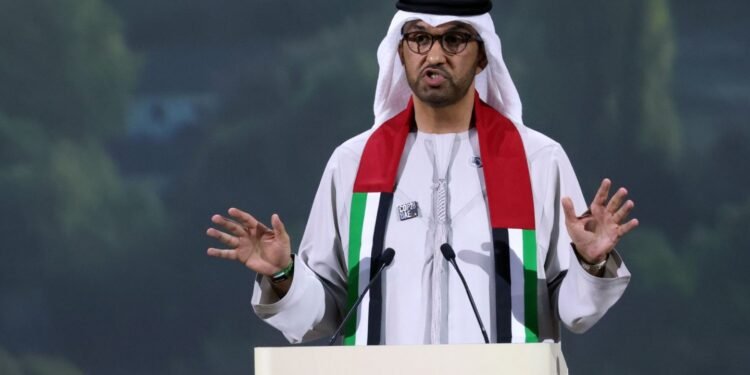The COP28 rollercoaster has come to an end, with hosts declaring a “historic consensus” but criticism from some of continued loopholes and shortcomings.
“We have worked very hard to secure a better future for our people and our planet. We should be proud of our historic achievement,” said COP28 President Sultan Al Jaber. The official statement reported the plan would close the gaps to 2030 and it called on signatories to move away from fossil fuels.
“Whilst we didn’t turn the page on the fossil fuel era in Dubai, this outcome is the beginning of the end,” said UN Framework Convention on Climate Change (UNFCCC) Executive Secretary Simon Stiell.
North Star
In particular, the agreement confirms the goal of tripling renewable energy supply by 2030, while doubling energy efficiency. During the talks, commitments of more than $85 billion were made to funding climate action.
The UAE Consensus aims to limit temperature rises to 1.5 degrees Celsius.
“The world needed to find a new way. By following our North Star, we have found that path,” said Al Jaber. “Everyone came together from day one. Everyone united, acted and delivered.”
He described the plan as balanced, in that it “tackles emissions, bridges the gap on adaptation, reimagines global finance and delivers on loss and damage”.
Al Jaber highlighted the importance of action, over rhetoric. “Let me sound a word of caution. An agreement is only as good as its implementation. We are what we do, not what we say.”
Implementation
The UAE took a leading role in the mobilisation of financing, announcing the launch of Altérra, with a $30bn investment. It aims to mobilise $250bn.
The consensus marked out a number of additional steps, not least the Global Decarbonization Accelerator (GDA). This covers the pledge to triple renewables, to at least 11,000 GW, which 132 countries endorsed.
It also included the Oil and Gas Decarbonization Charter (OGDC), which commits to zero methane emissions and ending routine flaring by 2030. It also commits to net zero operations by 2050, at the latest. The statement reported that 52 companies had signed up, representing more than 40% of oil production.
Rystad Energy CEO Jarand Rystad said he was “impressed” with the OGDC pledge. He noted the concrete measures on delivery, including the use of satellites to measure methane.
“In contrast to carbon dioxide emissions, where there is always a trade-off, reducing methane emissions saves energy and offers only benefits. Thus, with so many important companies signing this pledge, hopes are high that meaningful improvements with swift climate impact will come,” Rystad said.
The agreed COP28 text confirms a phase down of unabated coal and phasing out subsidies for fossil fuels. It called for developing countries to take the lead. It targeted subsidies “that do not address energy poverty or just transitions”, leaving some room for interpretation.
The text included reference to nuclear, carbon capture and storage (CCS) and low-carbon hydrogen.
In the squeeze
UNFCCC highlighted concerns around the financing. The sums committed are “far short” of the amount needed to support developing countries.
The agreement set out the plan for COP29 to be held in Baku and COP30 in Belem, a Brazilian city in the Amazon.
Global Witness CEO Mike Davis said the agreement on reducing fossil fuel use was a “hard-won victory”. However, he continued, the failure to agree on phasing out meant that fossil fuels would continue forever.
“Serious climate action means no loopholes, no reliance on unproven technology and an immediate phaseout, with massive financial support for the transition from the richest countries and from big polluters,” Davis said.
The Center for International Environmental Law (CIEL) said COP28 had “failed profoundly” in failing to commit to a phase out of fossil fuels. It reported “at least” 475 CCS lobbyists had attended the event and 2,456 fossil fuel lobbyists.
That the UAE Consensus agreed to “transition away” from fossil fuels is notable, not least for the criticism that COP28 received. OPEC and Saudi Arabia had pushed to focus the text on cutting carbon, rather than fossil fuels.
Recommended for you











